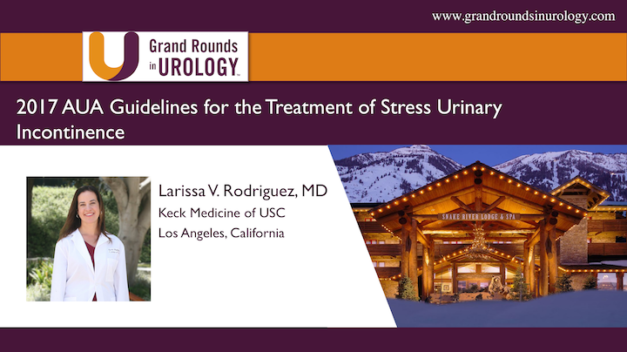2017 AUA Guidelines for the Treatment of Stress Urinary Incontinence
Larissa V. Rodriguez, MD, summarizes the 2017 American Urological Association (AUA) Stress Urinary Incontinence (SUI) guidelines and critiques their limitations. In particular, she criticizes the fact that their index patient does not represent patients urologists usually see, their exclusion of non-FDA approved interventions, and their insufficient emphasis on urodynamics.
Read More




